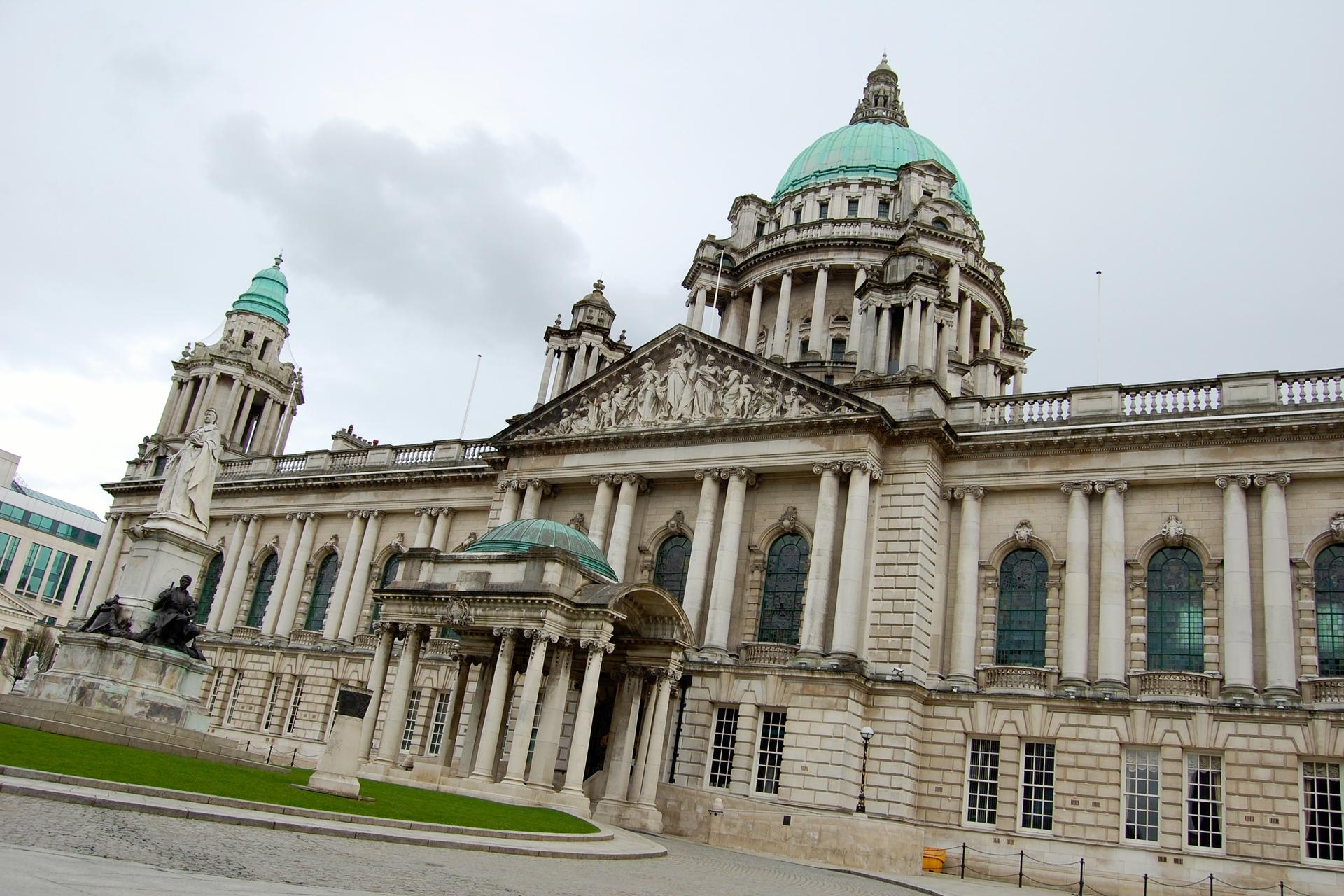Tensions simmer in Northern Ireland months after flag protests
The decision to reduce the number of days the Union Jack flies above Belfast City Hall has reopened old wounds.
Editor's note: This story is part of a three-part series on simmering tensions in Northen Ireland. Read about the uneasy peace 15 years after the Good Friday Agreement, and how an old prison has sparked new outrage.
BELFAST, UK — Last December, a majority coalition of republican and liberal lawmakers on the city council voted to reduce the number of days the Union Jack flies above the Baroque pediment of City Hall from 365 to 18 — the number of holidays on which British law encourages government buildings to fly the national flag.
To some in the city’s Protestant, pro-British unionist and loyalist communities, that was seen as a step too far upon their cultural identity. Others took it even farther.
The flag vote set off more than three months of protests, rioting and armed clashes in Belfast and other Northern Ireland cities, rekindling the kind of violence many had hoped was extinguished, and exposing tensions that are still simmering.
“We think everything is hunky-dory and Belfast is a great tourist destination, and then you have the flags protest,” said Brian Gormally, director of the Committee on the Administration of Justice, a Belfast-based human rights NGO. “Some of these things are not far below the surface.”
The Union Jack had flown above the building every day of the year since 1906. In the minutes after the vote, protestors tried to break through the back doors of the imposing City Hall building, prompting a fight that injured 18 people.
What followed was a dismal replay of scenes not seen on Belfast streets in decades.
In the ensuing weeks, youths hurled gasoline bombs across the so-called peace walls dividing Catholic and Protestant neighborhoods. Lawmakers received death threats. The office of East Belfast MP Naomi Long, whose Alliance Party voted to take the flag down, was firebombed. Rioters hurled bricks and missiles at police, who responded with water cannons and plastic bullets.
The hostile crowds in Belfast’s city center deterred holiday shoppers and revelers, dealing a blow to the struggling local economy.
“It just ruined Christmas for Belfast altogether,” said taxi driver and local guide Geordie Ritchie.
More than 140 police officers and dozens more civilians were injured in the conflicts, which have cost an estimated $30 million in additional police. More than 200 people have been arrested for their involvement.
Protest organizers were “orchestrating violence for their own selfish motives,” Police Chief Constable Matt Baggott told CNN in January. "Everyone involved needs to step back. The lack of control is very worrying.”
Many in Belfast say the protests came as an unsettling surprise after many years of relative peace. Until the first week of December, 2012 saw less crime than any year since the Good Friday Agreement was signed in 1998.
Those familiar with the sentiment in pro-UK loyalist and unionist communities said the protests were no shock, however. They say the rioters are frustrated young people who feel left behind politically and economically.
“The term ‘flag protest’ diminishes what the problems are. It’s much, much deeper than that,” said Tom Winstone, director of Northern Ireland Alternatives, an organization that works with young offenders.
The protests also highlighted a generational divide within the loyalist community between those itching to resume the fight and those who have fought those battles before. Youth leader Jamie Bryson, 23, made his name as one of the most outspoken organizers of the protest. He has since been arrested on public disorder charges.
More from GlobalPost: Belfast after the Troubles
Meanwhile, former paramilitaries who remembered Belfast’s darkest days urged their compatriots to embrace a political solution.
“I say that if we want to reverse the flags decision, people need to register to vote and then turn out to vote when there is an election,” Jackie McDonald, a leading figure in the Ulster Defence Association, told the Belfast Telegraph in January. “If we had voted last time, this wouldn’t have happened.”
The crisis undermined the work former paramilitaries have done to move young people in their communities away from the violence that once kept the city a prison, he said in an interview.
“Since the Good Friday Agreement, we’ve tried to give them their freedom back,” he said. “The flag protest has given them a whole new identity, where we’re the turncoats and traitors and they’re the superpowers.”
Our coverage reaches millions each week, but only a small fraction of listeners contribute to sustain our program. We still need 224 more people to donate $100 or $10/monthly to unlock our $67,000 match. Will you help us get there today?
